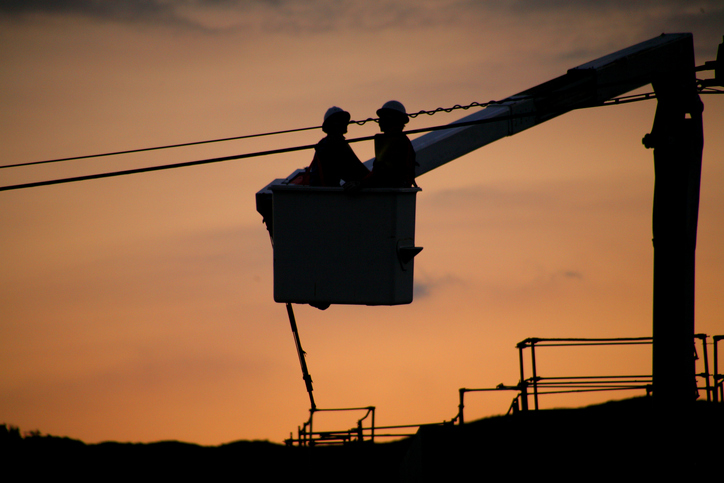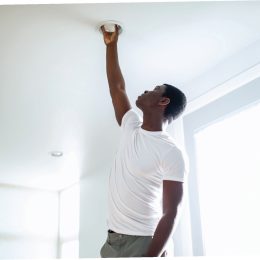
By Cindy Denney
You may recall a time when you suddenly heard a loud crash or witnessed a bright flash, and then darkness.
The lights were out.
As frustrating as the moment was, you should rest assured your local electric cooperative was already getting to work. Improved technology has helped electric co-ops quickly identify power outages so crews can repair damage and restore service to homes and businesses. Severe storms can sometimes cause significant damage, resulting in multiple repairs that need to be made before all power is restored. Some of the potential areas for damage include:
HIGH-VOLTAGE TRANSMISSION LINES
The transmission towers and cables that carry electricity to transmission substations rarely fail. Yet if they are damaged, these can cause significant outages – and they must be repaired to ensure that the rest of the system can function properly.
DISTRIBUTION SUBSTATIONS
Each substation can serve thousands of members; substations are checked during power outages. If the issue is located at the substation (or the transmission lines leading to the substation), then that means that power can be restored to hundreds or even thousands of members.
DISTRIBUTION LINES
If a power outage is not caused by damage at a substation, the main distribution lines are then checked. Main distribution lines carry the electricity to large groups of buildings, including businesses and housing developments, in a community.
TAP LINES
These lines carry power to underground transformers or are connected to poles outside of homes and businesses. Line crews prioritize which lines to work on based on which lines will restore power to most members.
INDIVIDUAL HOMES
If your home is still without power, then the service line from the nearby transformer to your home may have been damaged. These lines are then repaired to restore power to homes, schools, and other buildings.
If you lose service in your neighborhood or to your home, stay clear of downed power lines and report the outage to your local electric co-op. This will ensure that the line crews are aware and restore service as soon as possible. By understanding the process, you can know more and be assured that your local electric co-op is working as hard as it can to make sure that the electricity stays on to help power your day.
CINDY DENNEY retired in March and was the director of marketing and customer service at Jay County REMC, Portland, Indiana.



